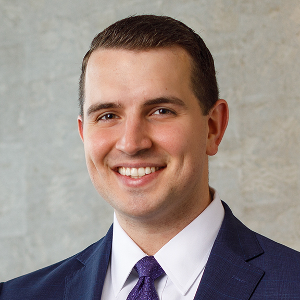A recent federal court ruling that attempted to set down a distinct line between marijuana and low-THC products (like CBD and delta-8) has led many to make broad conclusions as to what it means for various products. Courts have struggled with drawing the line on these products with everything from employment decisions to intellectual property.
These courts, like the 9th U.S. Circuit Court of Appeals in May 2022, are following the precedent of attempting to clarify the federal rights held by companies selling products with marijuana (illegal under federal law, but legal for medical and/or adult use in some states) and products with CBD or delta-8 THC (generally a grey area under federal law and legal in certain circumstances only in some states). As a result of this trend in federal courts, companies may see an increasing number of employment, American Disability Act (ADA) and intellectual property disputes related to CBD and other hemp-based products.
Most recently, for example, in AK Futures LLC v. Boyd Street Distro, LLC, a producer and distributor of delta-8 tetrahydrocannabinol (delta-8 THC) sued another producer for trademark and copyright infringement on its delta-8 THC e-cigarettes. 35 F.4th 682 (9th Cir. 2022). Without disputing whether it was selling counterfeits or infringing on the copyright, the defendant challenged the legality of plaintiff’s delta-8 THC product and plaintiff’s ability to maintain any federal trademark or copyright.
After extensive briefing and an appeal, the 9th Circuit held that delta-8 THC products were “lawful” under the plain language of the 2018 Agriculture Improvement Act (the Farm Act) because they are “removed [as] ‘hemp’ from the definition of marijuana in the Controlled Substances Act.” The 9th Circuit denied all of defendant’s arguments that the Farm Act did not extend to protect delta-8 THC.
Importantly, because the court ruled delta-8 THC products were federally legal under the Farm Act, companies selling such products could benefit, at least with respect to federal copyright and trademark laws. Despite the 9th Circuit’s broad proclamation on delta-8, delta-8 remains on the U.S. Drug Enforcement Administration (DEA) July 2022 List of Controlled Substances. Also not fully addressed by the court is DEA’s September 2021 letter to the Alabama Board of Pharmacy explicitly noting delta-8 THC “synthetically produced from non-cannabis materials is controlled under the [Controlled Substances Act] as a ‘tetrahydrocannabinol.’” Finally, the opinion does not differentiate the panoply of state laws that prohibit or have warned against delta-8, such as those in Kansas, Minnesota, New York, Oregon and Virginia.
Similar to copyright and trademark protection, trade secret protection for companies developing marijuana strains or selling THC-based products also remains a concern. While these companies have important confidential information in grow methods, laboratory processes, customer lists and pricing, it is still undecided whether these companies will benefit from federal trade secret laws like the Defend Trade Secrets Act.
At least one court in California has offered some protection. In Silva Enters. v. Ott, defendants allegedly stole customer information from a marijuana consultant, and they argued that plaintiffs could not maintain a claim “for misappropriation of trade secrets because ‘there is no trade secret protection for ongoing illegal activities.'” No. 2:18-cv-06881, 2018 U.S. Dist. LEXIS 223854, *13 (C.D. Cal. 2018). The district court rejected defendants’ argument, stating that the Controlled Substance Act, though it makes cannabis illegal for plaintiffs, “does not immunize defendants from federal law.” Id. (emphasis added). Based on this case dealing with marijuana and the continued distinction between marijuana and low-THC products, the latter may be more likely to enjoy trade secret protection under state and federal law.
Finally, employee rights and employer accommodations are also in flux. In Huber v. Blue Cross & Blue Shield of Florida, Inc., an employee tested positive for THC and was terminated based on the employer’s policies and government contract that required termination for a failed test. No. 20-3059, 2022 U.S. Dist. LEXIS 87139 (E.D. La. 2022). After the plaintiff-employee sued the employer under the ADA, the employer moved for summary judgment, arguing that employees who test positive for THC are automatically removed from the ADA’s protections.
The Eastern District of Louisiana denied the employer’s motion partly because the employee alleged that she was using “non-psychoactive hemp-based CBD oil” under a doctor’s prescription to manage chronic migraines. The court noted that a reasonable accommodation required that her employer “provide some way to account for and excuse a false positive” test, since she had sought an accommodation for her use of CBD oil. Thus, a jury will have to determine whether the employer should have engaged in the interactive accommodations process after the employee tested positive for an otherwise restricted drug. While this decision is not currently binding on other courts or employers, employers may face more scrutiny for automatic terminations of employees who test positive for THC, especially if the employee raises a facially valid claim to CBD use.
Despite these court opinions, things remain in a state of flux, and litigation on these issues continues to proliferate. Ultimately, courts are continuing their trend toward protecting federal rights related to the use, sale or distribution of “hemp” products and “hemp-derived CBD,” while those same activities for marijuana still face federal scrutiny. These courts are attempting to draw a clear distinction between these two products — making the processes and verifiability of THC levels and the source of the CBD in products more important than ever.
















